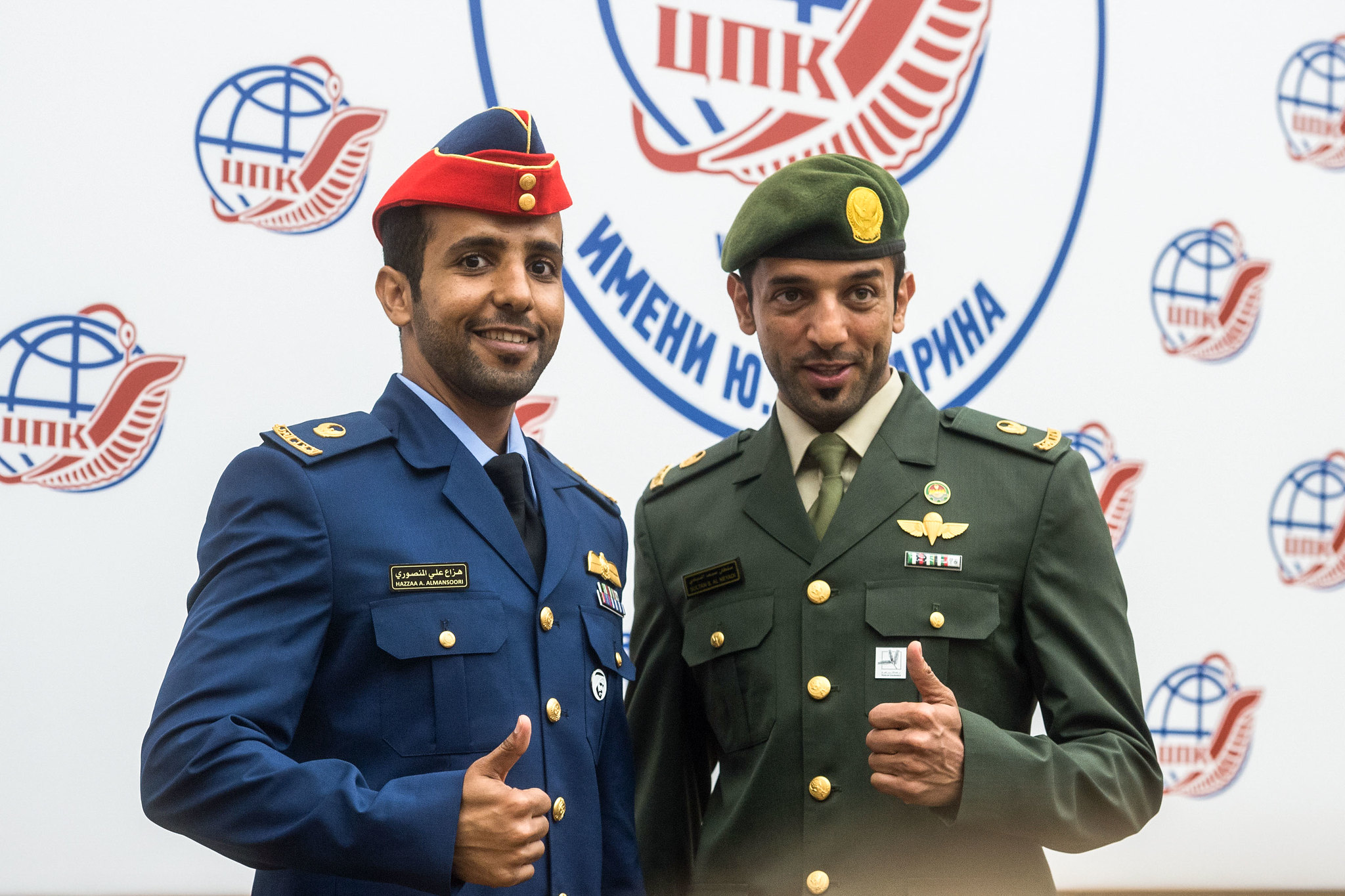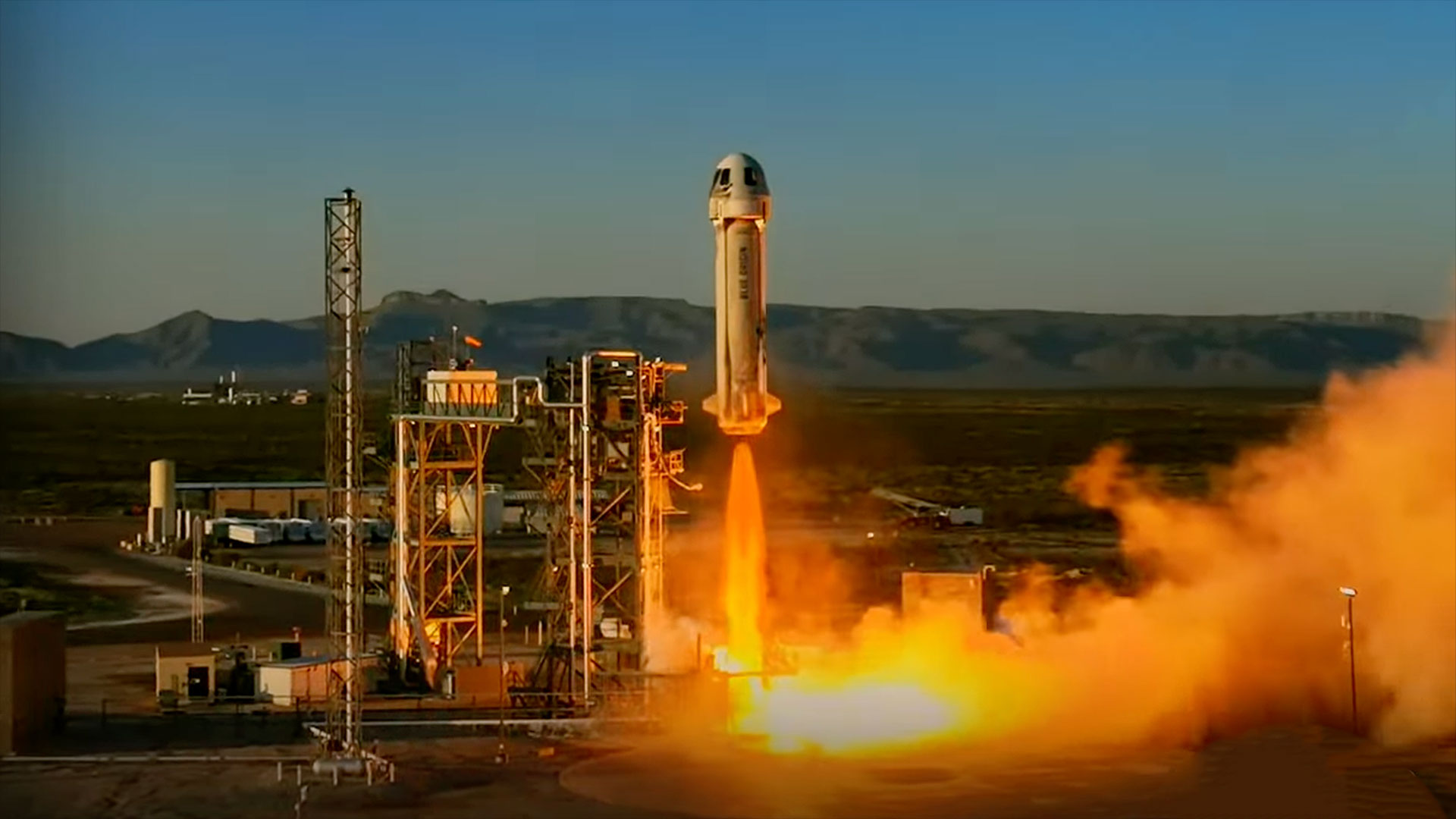UAE seeks new astronauts to expand human spaceflight program

Less than a year after sending its first-ever astronaut to space aboard a Russian capsule, the United Arab Emirates is combing through a second batch of applications for its spaceflyer ranks.
The country's space program intends to select another two astronauts for the corps, even as its existing pair — Hazzaa AlMansoori and Sultan AlNeyadi — enter a new stage of training. When the program opened calls for astronaut applicants, it received just over 4,300 submissions, from which it plans to select two by January, despite procedural changes caused by the continuing COVID-19 pandemic. The program is focused on how the UAE can get more involved in the International Space Station (ISS).
"The ISS program, we're new to it — it's 20 years old, we're new to entering it," Salem AlMarri, head of the UAE astronaut program at the Mohammed bin Rashid Space Centre, told Space.com. "But I can say it's really about communication between people and relationships, which builds that trust and builds that kind of camaraderie to work together and make sure that we can achieve big objectives for the space industry."
Related: Hazzaa AlMansoori: The 1st Emirati astronaut's space station mission in photos
The UAE got its first taste of human spaceflight in September 2019, when AlMansoori launched on a weeklong flight to the space station as a spaceflight participant through a deal with Russia. He and his backup, AlNeyadi, are currently the only members of the UAE's astronaut corps. Since AlMansoori's return to Earth, the pair have traveled across the UAE and the Middle East conducting outreach for the agency.
But soon, the UAE space agency plans to send AlMansoori and AlNeyadi on a new mission, of additional, more thorough spaceflight training to augment what they learned before AlMansoori's flight.
"Because it was focused on that eight-day mission, a lot of that training was related to the Soyuz," AlMarri said, referencing the Russian workhorse capsule for station flights. "That training didn't encompass things like work on EVAs [extravehicular activities, or spacewalks] or in-depth knowledge of the ISS itself."
Breaking space news, the latest updates on rocket launches, skywatching events and more!
That type of knowledge will be particularly vital if the UAE wants to lengthen its stays on the space station, which it does, since launches are expensive no matter how long the visit. "We would not be against the idea of going with short-duration missions, because they're very beneficial, but we'd like to scale up as we can, and try to do more with these opportunities," AlMarri said.
The UAE's astronaut office sees more opportunities coming soon, thanks to the increase in vehicles capable of reaching the space station. Since 2011, only the Soyuz has made these flights, but that is changing with the successful Demo-2 launch of SpaceX's Crew Dragon vehicle on May 30 and the scheduled flights of Boeing's Starliner, due to begin flying astronauts next year.
"U.S. commercial vehicles I think are a big part of the future," AlMarri said. "I think having three players to be able to discuss and negotiate and talk to is a much better position to be in then when we sent up [AlMansoori] and there was only one." And the UAE will stick with hiring rides from other carriers, he said, not build its own capsules or rockets, even within the next decade.
The push for a new astronaut class comes even as the UAE prepares to launch its first interplanetary mission, a Mars orbiter, this summer, following several Earth-observing satellites.
"Operating those types of missions is, I would say, relatively simple in comparison to trying to manage and operate the mission of an astronaut," AlMarri said. "You've got somebody that needs, obviously, attention. Every activity that's done needs to be supported, needs to be watched, needs to be supervised and needs to be also controlled from the ground."
- The UAE wants to send people to Mars. But first, a practice round on Earth.
- The UAE is going to Mars. Here's the plan for its Hope orbiter.
- The 1st Emirati astronaut has had a blast in space, but it's time to come home
Email Meghan Bartels at mbartels@space.com or follow her @meghanbartels. Follow us on Twitter @Spacedotcom and on Facebook.
OFFER: Save 45% on 'All About Space' 'How it Works' and 'All About History'!
For a limited time, you can take out a digital subscription to any of our best-selling science magazines for just $2.38 per month, or 45% off the standard price for the first three months.

Meghan is a senior writer at Space.com and has more than five years' experience as a science journalist based in New York City. She joined Space.com in July 2018, with previous writing published in outlets including Newsweek and Audubon. Meghan earned an MA in science journalism from New York University and a BA in classics from Georgetown University, and in her free time she enjoys reading and visiting museums. Follow her on Twitter at @meghanbartels.

